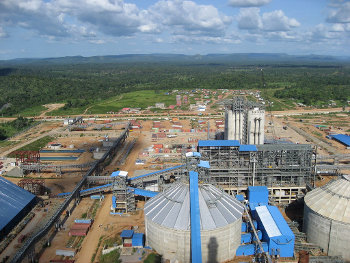KAMPALA, Uganda — China last month sent a senior official to symbolically hand over the keys to a nine-story twin tower to house Uganda’s president and prime minister, a gift from Beijing.
The white structures with a sloping roof cost China $27 million to build. But — in a strategy that China is increasingly employing around Africa — Beijing didn’t just deliver the money and let Ugandan officials see the project through. It was built by Chinese workers in what aid watchdogs applaud as a model to help defeat the inefficiencies and cash-pocketing corruption associated with other systems of foreign aid delivery.
China has a growing economic footprint in Uganda and much of the rest of Africa, and some Ugandans natives complain of the rising number of Chinese arriving to set up shop. China’s strategic interest in this East African country has deepened at a time when Uganda hopes to become an oil producer.
But the completion of projects like a modern hospital complex has softened China’s reputation, while Beijing’s efforts to produce turn-key projects are winning fans among Ugandans tired of seeing their officials ripping off foreign aid projects with impunity. Instead of giving cash, the Chinese government prefers to pay Chinese companies to build roads and structures, bypassing local politicians, powerbrokers and construction crews, and to deliver them completed.
The China model is “more effective. It’s less prone to corruption,” said Sven Grimm, the executive director of the Center for Chinese Studies at Stellenbosch University in South Africa. He said the approach also bolsters China’s economy, because “Chinese enterprises ... go out and gain international experience.”
Experts say China’s model of donating buildings and roads might help it cut the risk of aid scandals like the one that rocked the $22.6 billion Global Fund to Fight AIDS, Tuberculosis and Malaria over the past year. The Geneva-based financier gets donations from wealthy donor nations and private sources like Bill Gates. But donors recoiled after the fund’s internal watchdog documented more than $50 million in losses due to corruption and other misuse and unauthorized spending, affecting much of Africa, including Uganda.





 Reply With Quote
Reply With Quote







Bookmarks